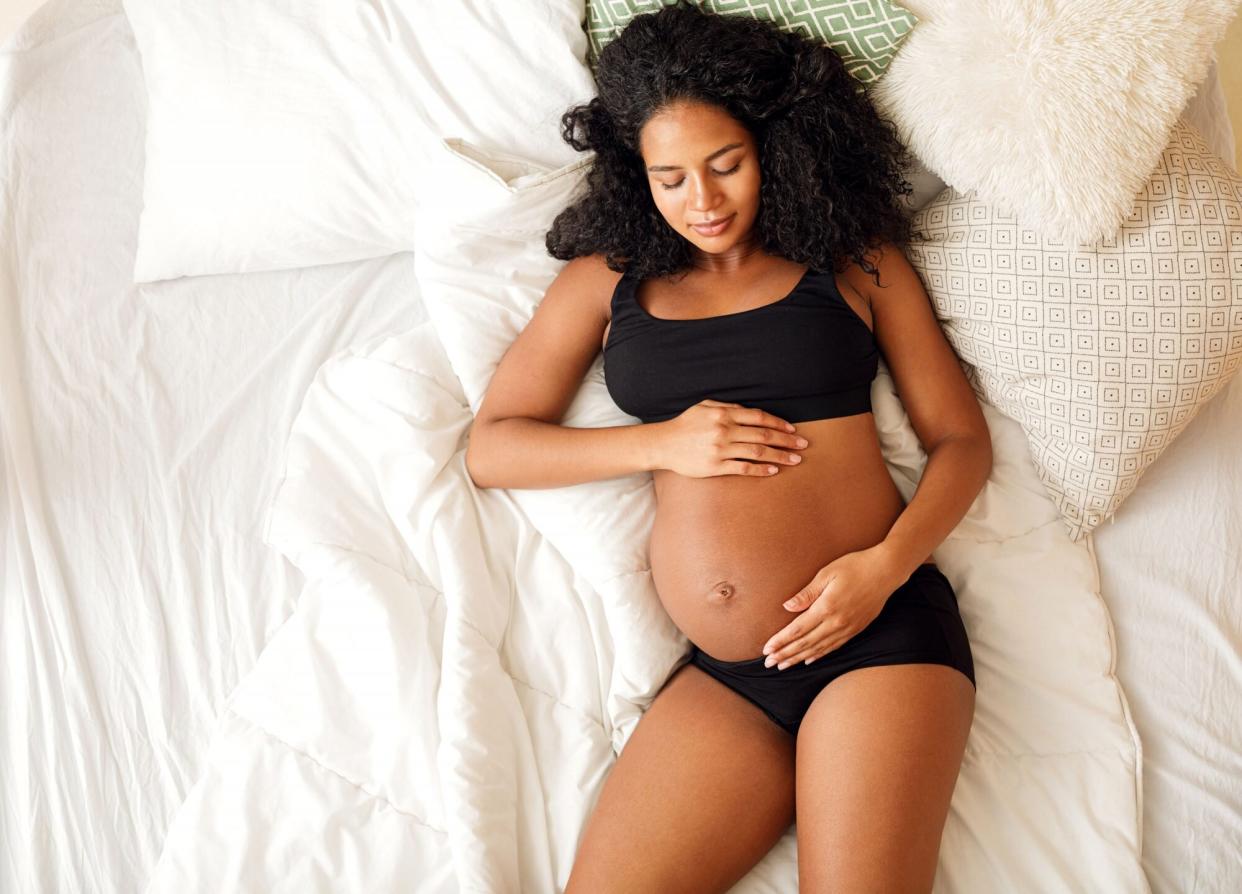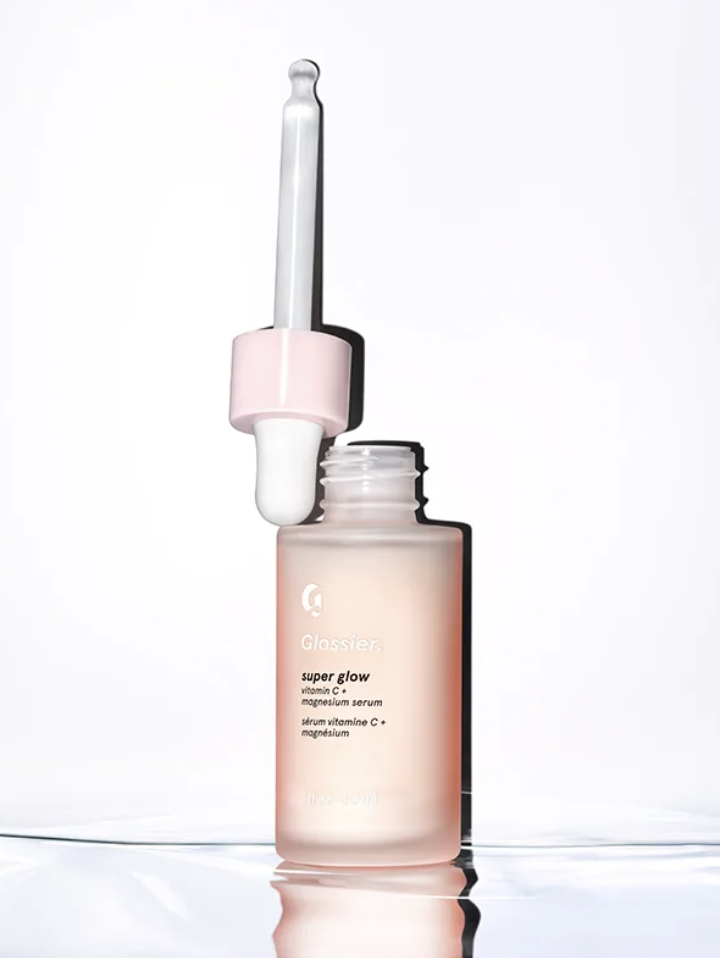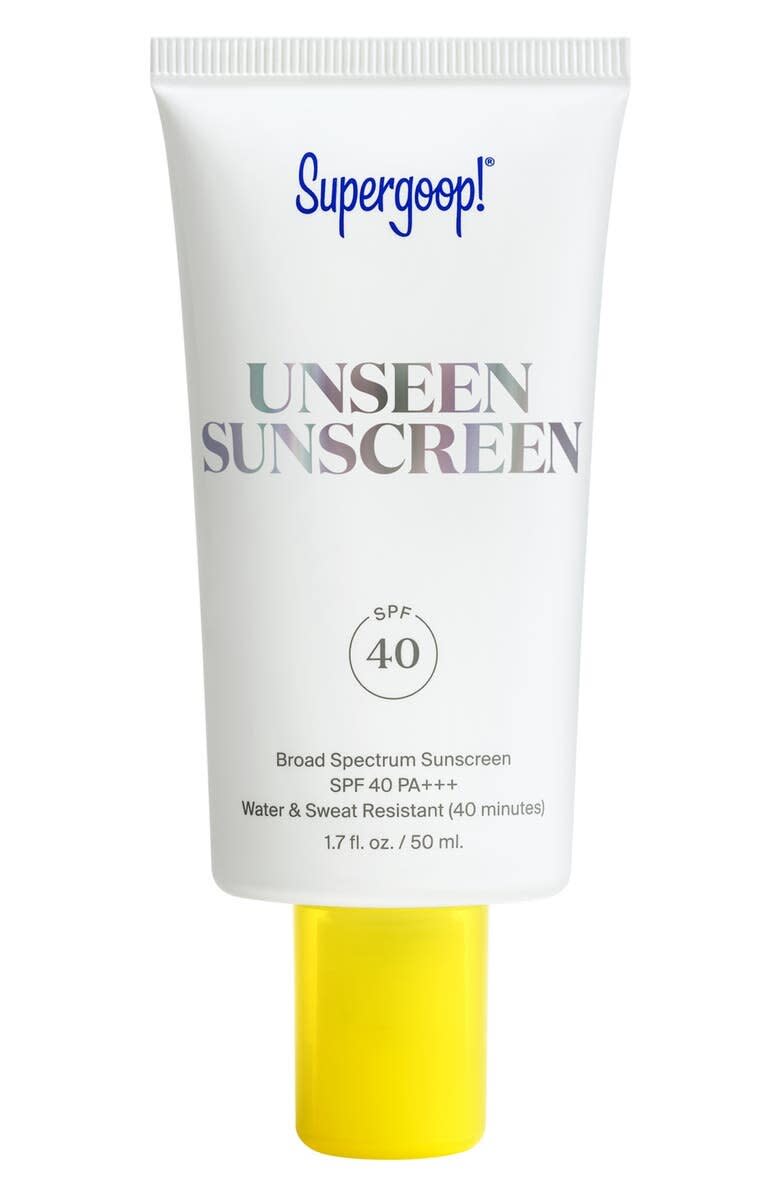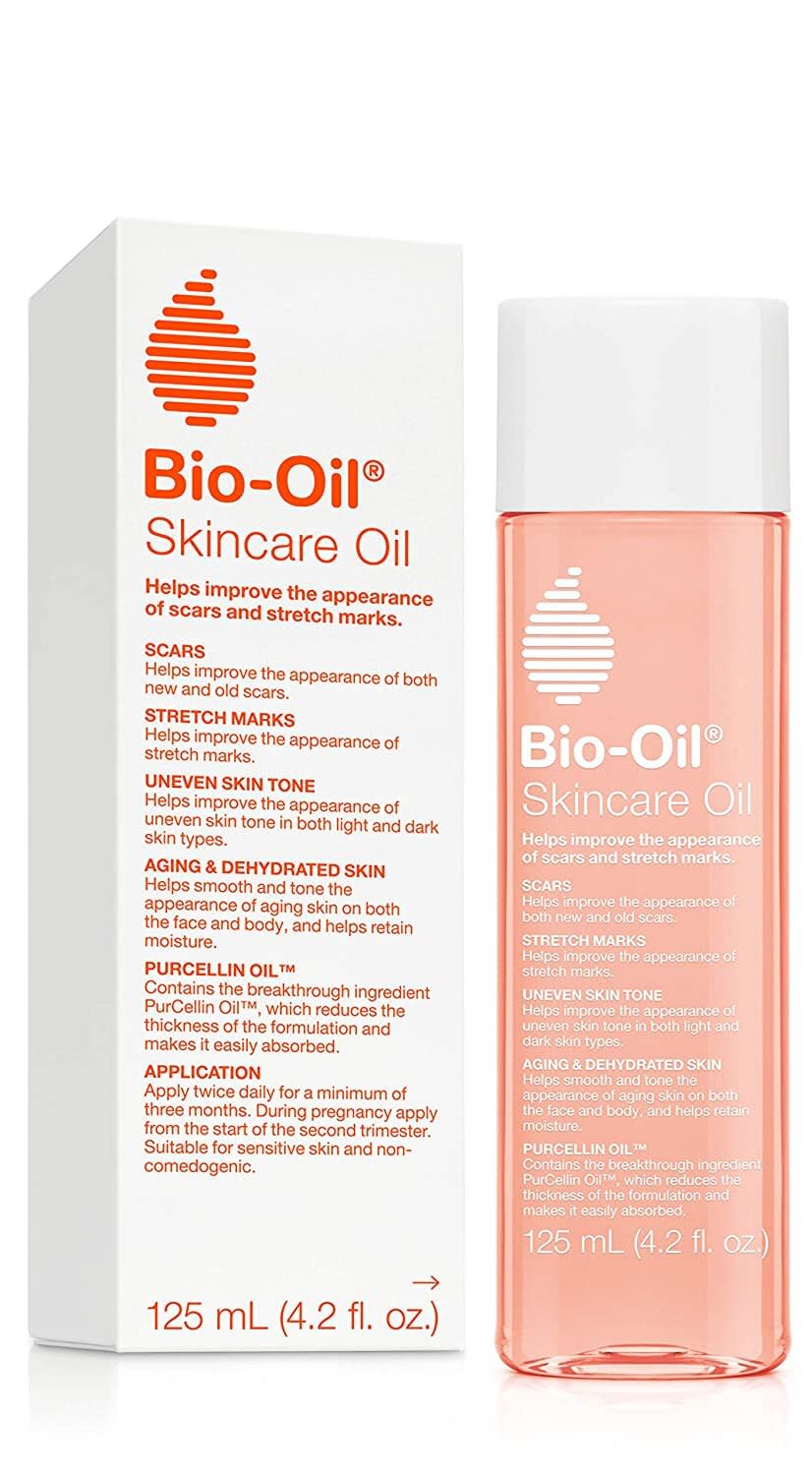Pregnancy Threw My Skin For a Loop — These Three Products Were My Saving Grace

Getty Images
The days and weeks following a positive pregnancy test are a whirlwind filled with more pregnancy tests, doctors appointments, blood work, and many excited, tear-filled phone calls and FaceTimes. All kinds of pregnancy apps are downloaded (I downloaded three, to be exact) where you can follow along with your baby's development and learn about the myriad new and confusing ways your body is changing.
There's a guide for almost everything in pregnancy: how to tell your employer, how much money you should save, what to put on your registry, how to pack your hospital bag, the best toys and books for babies, or how to breastfeed, pump, and/or bottle feed. There are prenatal courses you can take, yoga classes tailored for your growing body, and lists dedicated to the best maternity leggings. The amount of information that is thrown at a pregnant person, while mostly welcomed, can be overwhelming.
But there was one area where I found myself struggling to find cohesive, consistent information that I could trust: skincare.
RELATED: Help, I'm Pregnant and Horny as Hell
Almost immediately after I found out I was pregnant, my skin changed. My face, neck, and chest got darker — a condition known as melasma, or commonly known as the "mask of pregnancy," was the cause. Pre-pregnancy, I was getting maybe one or two pimples every few months, afterwards, I was experiencing breakouts almost weekly, which led to dark spots on my face that seemed hellbent on staying far past their welcome. On top of that, my usually normal-combination skin was now extremely dry and itchy. To put it bluntly: my skin was in the worst condition I'd ever seen.
Admittedly, my skincare regimen pre-pregnancy was very low stakes, thanks in part to my skin being fairly easy to manage. Aside from stressful periods or stretches of unhealthy eating, I was very lucky that my skin never really acted out. I used a gentle daily face wash in the morning and at night before bed, along with a moisturizer and sunscreen, and I was good to go.
I never really had to put much thought or work into developing a rigorous routine because I just didn't need it. But as my pregnancy progressed, my skin only got worse. So I did what most millennials of an, ahem, certain age bracket do: I went to Reddit.
I scoured pregnancy forums for days, hoping to find other women who were experiencing the same thing I was. Not only was I desperate for some sort of solution, I was also keenly aware that I couldn't use just any product.
I soon learned that pregnancy comes with a lot of things to avoid: alcohol, certain foods, and yes, even some ingredients found in common skincare products.
VIDEO: Pregnant or Planning to Be? You Need to Know About This Under-the-Radar Virus
I recently spoke with Dr. Renée A. Beach, a dermatologist and assistant professor based out of Toronto. She acknowledges the pregnancy-related skin concern she sees most from her patients are acne-related. "The reality is that several of the commonly used acne ingredients are to be avoided while pregnant. It can be really difficult for patients who know how to care for their skin when they're not pregnant, to now have to hold back from certain ingredients," she shares.
The number one thing to avoid while pregnant, Dr. Beach says, is retinol and/or retinoids. These products' popularity comes from their ability to reduce fine lines, soften dark spots, and stimulate collagen production. And even though its absorption into your bloodstream (or baby's bloodstream) would more than likely be minimal, dermatologists still recommend avoiding them — especially in the first trimester — due to their capabilities to cause embryo malformations.
During our conversation, Dr. Beach explained that there is a lot going on physiologically during pregnancy, which is what triggers the skin changes. "It's so much more than just 'hormones,'" she says. "It's tissue and blood vessel growth and the interplay between these growth signals and the change in the mom-to-be's immune system that causes the dramatic changes a patient might be seeing."
In my own research, and further explained by Dr. Beach, I learned that it's so much more than just cosmetic skin changes that can occur during pregnancy. Some women may notice new moles or skin tags (or changes in existing ones), hair grows at an exponential rate, and varicose veins can start to pop up. Women with psoriasis or eczema may even see these conditions appear to be less active due to the dampening of their immune system. But regardless of what you may be noticing, Dr. Beach encourages women to get evaluated by a dermatologist if they're able to, especially if they're presenting with new or changing moles.
So what should pregnant women be using for their skin? Dr. Beach's answer, she admits, may not be sexy but it is, at the very least, simple.
"The key in pregnancy is to protect your skin," the M.D. shares. "Things like melasma are really hard to treat or eliminate once present, so prevention is always the best plan." She recommends zinc oxide-based sunscreen with an SPF of at least 30 and iron oxide to help quell any skin and/or pigmentation concerns.
The products that ended up saving my skin (and self-esteem) consisted of just three products: Glossier's Super Glow Vitamin C + Magnesium Serum, Supergoop!'s Unseen Sunscreen, and the holy grail of recommended pregnancy products — the almighty Bio-Oil.
Glossier Super Glow Vitamin C + Magnesium Serum

Supergoop! Unseen Sunscreen

Bio-Oil Skincare Oil

The vitamin C and magnesium provided the tone-evening and hydration that my skin so desperately needed. And in conjunction with the Bio-Oil, my dark spots were nearly gone after a few weeks of consistent use. Plus, the sunscreen helped prevent future issues. These simple products worked so well for me that I'm still using them well into my postpartum journey now, a benefit that Dr. Beach notes in her postpartum advice for her patients, "To be real, a new mom has no time for a six to eight step routine. So generally, less is enough! I think managing cleansing and adding a form of protection like sunscreen is all that's really necessary in the postpartum period."
Your body undergoes massive changes, internally and externally, during pregnancy and postpartum, and it can feel daunting. So when you feel like you don't even recognize your own body anymore, it's no wonder that our self-esteem can take quite a hit. In addition to the excellent medical advice and treatment plans she provides, Dr. Beach often sees herself taking on the role of part-time therapist with some of her pregnant and new mom patients, trying to reframe the journey as one of growth and worthy of celebration.
"[I try to help my patients] accept — or dare I say, celebrate! — that your body will never look the same," she exclaims. "You are bringing new life into the world! So whether it's stretch marks, loose skin, new moles — it's all you, it's okay, and it's worth it."

 Yahoo Movies
Yahoo Movies 
